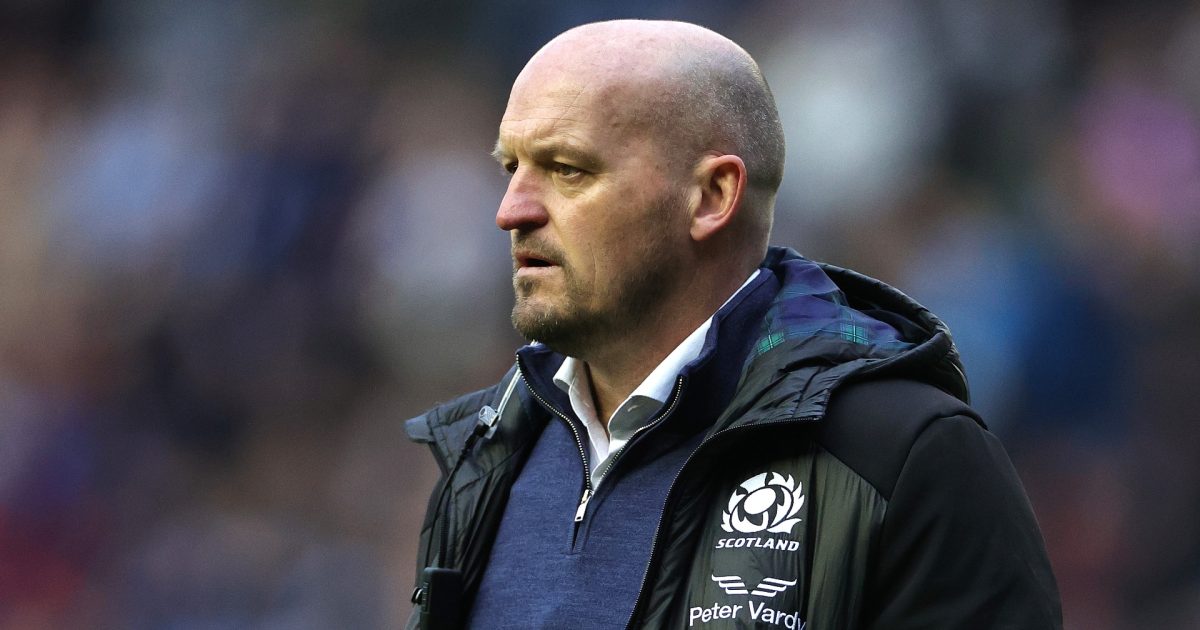World Rugby respond to Gregor Townsend's mouthguard tech concerns

World Rugby’s Lindsay Starling has underlined the governing body’s confidence in data provided by new smart mouthguards after Scotland head coach Gregor Townsend voiced concerns over the technology.
Townsend spoke out after last Saturday’s Calcutta Cup victory over England when a second Scottish player in successive matches went off for a head injury assessment that was triggered by mouthguard technology.
“I think we have to really watch what we are doing here by trusting technology that has not been proven,” Townsend said. “There is a bit more work to do before this technology is correct.”
World Rugby’s science and medical manager Starling has now explained that seven players in this season’s Guinness Six Nations have been removed from the field purely due to alerts from mouthguards.
The technology features an accelerometer and gyroscope to measure the magnitude and frequency of head acceleration events experienced by players during a game.
"Just a normal tackle. We have to really watch what we are doing here…"
– Scotland boss Gregor Townsend on the mouthguard alert that resulted in Zander Fagerson going off for 10 minutes early on versus England. #SCOvENG #ScotlandRugby #GuinnessM6N pic.twitter.com/uqvp4mJhdQ
— RugbyPass (@RugbyPass) February 25, 2024
The Six Nations is the first elite men’s competition to use the technology, which is designed to help with identifying a need for head injury assessments and provide in-game alerts to medical teams.
Starling, who leads the mouthguard project for World Rugby, said that those seven players had the biggest impacts out of 9,500 head accelerations in nine games so far. “That is to put it into perspective regarding how rare and small these numbers are in terms of the players coming off,” she said.
“For a player to be removed, it means they have sustained a really big knock. We are confident in the data that comes from the mouthguards and confident in the technology. We wouldn’t be introducing this on such a large scale if we weren’t confident in the data that is coming from them.
“From research we have done over the last few years, we have essentially identified a threshold whereby any impact that is occurring to a player above that threshold, it is very likely that the player displays signs of clinical concussion. Past this (threshold), the players are sustaining really big impacts. They are in the top 0.1 per cent of impact events.
“When a player is being removed during a match because of a notification that has come from the mouthguard, that is because the player has sustained an impact above this threshold and needs to be removed and checked out by a medical professional.
“We see this as a real game-changer. It enables us to understand information about the players that we have never known before and cannot know just from observing. We have known for the last decade-plus that concussion is a topic that requires a huge amount of attention.
“Over the last few years that narrative has changed slightly to encompass all head-impact events, all head-acceleration events, not just those that manifest in clinical symptoms such as concussion.”
Mouthguards are also being used in the southern hemisphere’s ongoing Super Rugby Pacific competition, while the forthcoming women’s Six Nations will utilise them in addition to the men’s and women’s sevens competitions at the Paris Olympics.
Starling added: “Anything of this magnitude requires time and a huge part of this is around education that needs to be done with all stakeholders in the game. This year we will be instrumenting over 8,000 rugby players with this technology. Everyone does understand why this is being done, and that is purely for the welfare of players.”








































Of the seven, how many failed the HIA, versus those that went off for an HIA due to ‘normal process’?
Sooo, neither France’s Danty or Brex from Italy had an HIA? Or, were they not wearing the mouthguards. You can’t get any more of head contact than that. Why didn’t the technology detect that clash of heads?